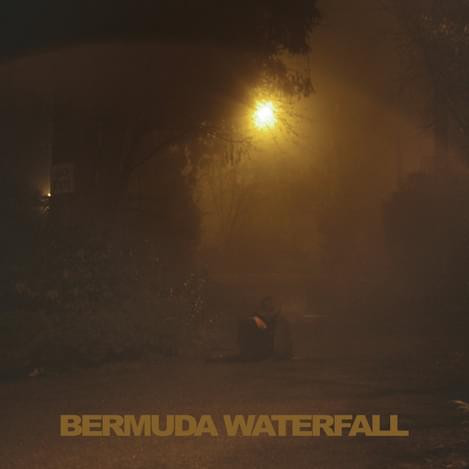Sean Nicholas Savage - Bermuda Waterfall
"Bermuda Waterfall"

The title track is a prime example. Imagine The xx covering Blood Orange; it’s soulful, vaguely NYC-loft ‘90s jazz, blended with distant echoes, silence and hushed bass. It’s graceful, and Savage’s voice as he sings “who I love most of all, my Bermuda waterfall…” is reminiscent of a class-act ‘70s Vegas crooner. It’s a pretty sultry affair, so fellas, loosen that tie and unbutton that collar. “Vampire” has a similar feel – it’s revamped (apologies for the incidental wordplay) ‘70s stage-pop, primed for the Engelbert Humperdincks and Tom Joneses of the world to grumble into those weird stick mics. It’s not a schlocky vintage pastiche, though it does veer towards sounding like a Mama Cass B-side upon occasion.
In fact, though perhaps it’s not obvious on first listen, this is a record steeped in the ‘60s/‘70s – from the faded gold artwork to the myriad sonic cues, this appears as his loveletter to a bygone era of music – to pumped-up showmanship and OTT melodrama, to proto-funk, soul and chic pop sounds. He’s not got the grandeur of the decades stars, few do nowadays, and the ruffled glamour probably isn’t his style, but he imports a dusty elegance into his music. His voice ensures that it’s not too Lana Del Rey – he can careen between quaking whisper and modern R&B slickster – and that we remember that we’re still listening to the one, the only, Sean Nicholas Savage.
There’s a strange, inebriated late-night vibe from cuts like “The Rat”, it’s jaunty bluesy keys and fading reverb implying a whiskey-soaked wooze. “Some Things Never Die” is the same sort of tone: glossy pop, with burbling, narcotic imperfections – it’s like listening to Dusty Springfield through a fishtank. “Empire” – one of the few cuts that sounds exceedingly modern (or at least past 1975), probably due to the bleep-bloop synthline – is another that dabbles with thick brain-addling smog. If there are two musical motifs that permeate Bermuda Waterfall, it’s intoxication and nostalgia. Au courant themes, for sure, but employed in a different way – he scarcely touches upon the oft-used early-‘90s or new wave of the mid-‘80s – which makes the record a vastly more intriguing prospect, even if only for the twisted timbre (though it’s got more appeal outside of that).
It’s a pretty exceptional record we have on our hands here. Savage’s conveyor-belt approach to albums is astonishing, but what’s more astonishing is his repeated high level of quality. You’d expect someone who puts out three albums a year (at times) to tire creatively, or at least show some signs of slowing down, but Savage is still truckin’. This is yet another different side we’re seeing, but it’s no less special. Perhaps a few stoic lo-fi fans of his might need a tad more convincing, but this might be the record that transports him from scene hero to mainstream contender.
Get the Best Fit take on the week in music direct to your inbox every Friday

Tunde Adebimpe
Thee Black Boltz

Julien Baker & TORRES
Send A Prayer My Way

Bon Iver
SABLE, fABLE





